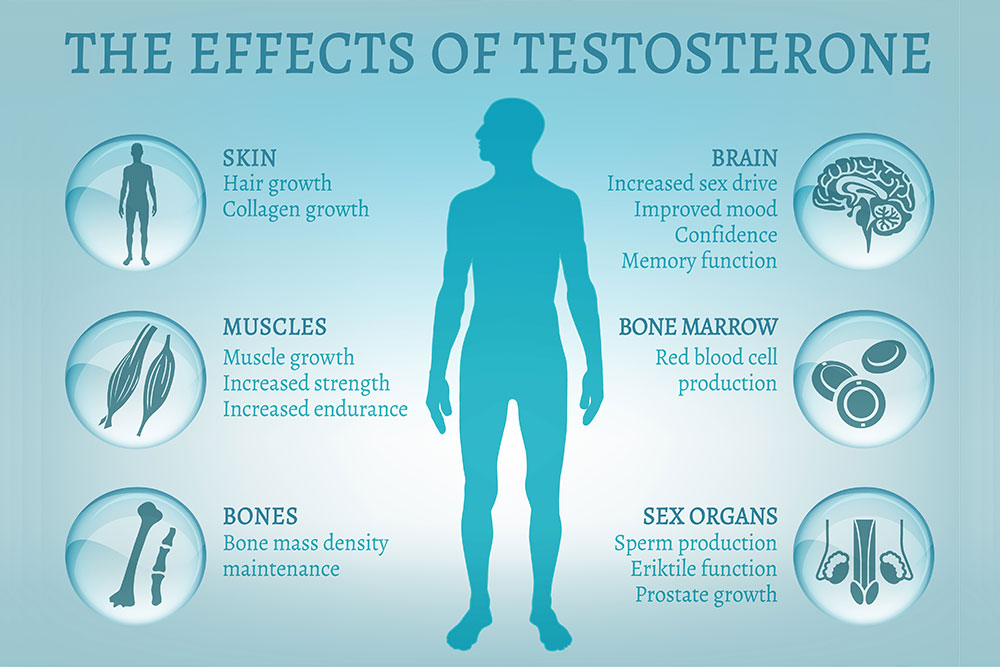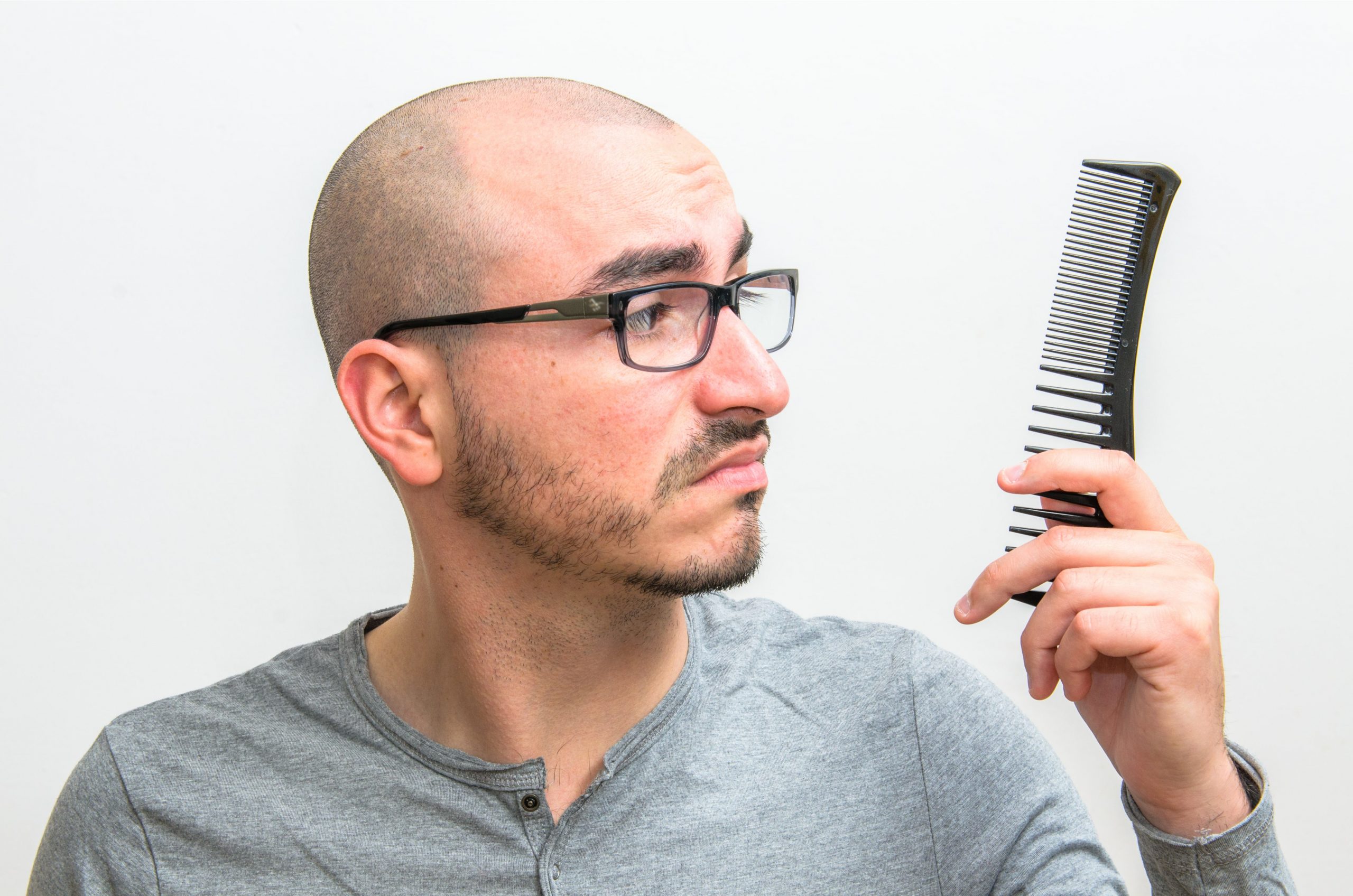Do High Testosterone Levels Cause Hair Loss?
Table Of Content

That said, the signs of hair loss can be slowed and reversed with several treatment options available at Dr. Michele Green’s dermatology office. Oral treatments, such as Minoxidil and PRP injections, can help to strengthen the hair follicle and prolong the growth phase, resulting in thicker, longer hair. DHT blockers, such as Finasteride, can be used to prevent the formation of DHT, which decelerates the rate of hair loss over time. No matter the underlying cause of hair loss, Dr. Green has solutions to protect you from significant hair loss. The best place to start is by consulting with a board-certified dermatologist, such as Dr. Green. Many patients feel that when treating hair loss, there are an overwhelming number of treatment options available on the market, and it can be hard to know which are effective.
When DHT Is Too Low
Polycystic ovarian syndrome is another condition that contributes to high DHT levels in females and occurs when the ovaries overproduce androgens, such as testosterone. When polycystic ovarian syndrome occurs and testosterone levels rise, additional side effects may include acne breakouts, body hair growth, and irregular menstruation. Hair loss related to androgenetic alopecia occurs in patients with a family history of male pattern baldness due to an increased sensitivity of hair follicles to the hormone DHT. As DHT binds to the hair follicle, it becomes weaker and thinner, ultimately causing the hair to fall out and the hairline to recede.
What causes high DHT levels in females?

High levels of testosterone in the body may result in an increased production of DHT, which can accelerate the process of hair loss for patients genetically susceptible to balding. While high testosterone or DHT levels do not directly cause hair loss, high DHT levels have been linked with conditions such as prostate cancer and benign prostatic hyperplasia. Excessive testosterone levels can potentially contribute to hair thinning. However, it is important to note that hair loss and hair growth are multifactorial and can be influenced by genetics, lifestyle factors, and overall health.
High Testosterone in Women: Symptoms and Causes - Business Insider
High Testosterone in Women: Symptoms and Causes.
Posted: Thu, 19 Jan 2023 08:00:00 GMT [source]
certain medications
Recommendations on information found on The Edge do not infer a doctor-patient relationship. PRP involves injecting platelet-rich plasma (taken from your own blood) into your scalp, which may provide growth factors that can protect the hair you have and trigger new growth. Fountain TRT was founded by Dr. Doron Stember, an esteemed TRT physician with decades of experience. Dr. Stember aims to deliver a contemporary, patient-focused approach to testosterone replacement therapy.
They can provide personalized advice, regularly monitor hormone levels, and ensure that any supplementation is done safely and effectively. To prevent unwanted hair growth, a 2020 review suggests that testosterone can be combined with 5-alpha-reductase inhibitors. These inhibitors block the conversion of testosterone into a more potent form, which is responsible for hair growth. Some people assigned female at birth may choose to take low dose testosterone as part of their gender affirming care.

Adderall side effects in females
To give you technically accurate, evidence-based information, content published on the Everlywell blog is reviewed by credentialed professionals with expertise in medical and bioscience fields.
What Are Normal Testosterone Levels In Men?
In this article, we’ll lay out everything you need to know about the role of testosterone in hair loss, and what other factors could be playing a part in your thinning or balding hair. Early treatment of a receding hairline (frontal fibrosing alopecia) might help avoid significant permanent baldness. The cause of this condition is unknown, but it primarily affects older women. If a hormone test like Hone’s at-home assessment shows that your testosterone levels are low, your doctor may prescribe testosterone replacement therapy (TRT) to get them back to a normal range. For those dealing with low T, testosterone replacement therapy (TRT) can provide numerous benefits, including increased energy, improved muscle mass, and enhanced overall well-being. It plays an especially important role in men’s overall health, and men with higher testosterone levels tend to experience a myriad of health benefits.
When it comes to hair loss, another hormone derived from testosterone called dihydrotestosterone (DHT) comes into the picture. DHT is produced when an enzyme called 5-alpha reductase converts testosterone into a more potent form. This hormone then interacts with hair follicles, particularly those located on the scalp, leading to a process known as miniaturization. Some people are more susceptible to these effects of DHT on scalp hair based on variations in their androgen receptor (AR) gene. Androgen receptors are proteins that allow hormones like testosterone and DHT to bind to them. This binding activity typically results in normal hormonal processes like body hair growth.
A Dermatologist Debunks The Top Myths About Hair Loss - Health Digest
A Dermatologist Debunks The Top Myths About Hair Loss.
Posted: Tue, 23 May 2023 07:00:00 GMT [source]
Female-pattern baldness
Age, stress, and other factors can influence whether you experience hair loss. But genes play a significant role, and men who have close male relatives with MPB have a much higher risk of developing MPB themselves. Male pattern baldness typically starts with a receding hairline, known as "front baldness." At the same time, hair loss from the top of the head can occur.
The relationship between androgen hormones, such as testosterone, and hair growth is complicated. High levels of testosterone can increase body hair and facial hair growth but can also increase levels of DHT, which can, in turn, contribute to hair loss. Low testosterone levels can affect overall wellness by decreasing muscle mass, bone density, and sex drive.
When DHT binds to the hair follicles of patients with high hair follicle sensitivity, the hair follicle becomes weaker and thinner, eventually dormant, causing hair thinning to occur. Patients with hair follicle sensitivity may experience accelerated hair loss when taking testosterone supplements. In addition to medication, lifestyle changes can also play a role in managing excessive testosterone levels and preventing hair loss. Regular exercise, stress reduction techniques, and a healthy diet can all contribute to hormonal balance and overall well-being.
It is recommended to consult with a healthcare professional for personalized advice and treatment options. In conclusion, abnormally high testosterone levels can have noticeable effects on hair growth and retention. It can lead to increased body and facial hair growth, as well as contribute to hair loss and thinning. However, it is essential to consider other factors such as genetics, lifestyle, and overall health when addressing hair loss. Treatment options for high testosterone-induced hair loss focus on regulating hormone levels and addressing any underlying health conditions contributing to the imbalance. Consulting with a healthcare professional or dermatologist can provide personalized guidance and treatment options based on individual needs.
Comments
Post a Comment